Written by Debbie I. Chang, MPH; Senior Vice President, Policy & Prevention, Nemours Children’s Health System and Lisa Simpson, MB, BCh, MPH, FAAP; President and CEO, AcademyHealth
Disclaimer: Moving Health Care Upstream is a collaborative effort originally co-led by Nemours Children’s Health System (Nemours) and the Center for Healthier Children, Families & Communities at the University of California- Los Angeles (UCLA). The views and opinions expressed in this article are those of the author(s) and do not necessarily reflect the official policy or position of Nemours, UCLA or the Moving Health Care Upstream initiative.
The last 12 months has seen its share of health policy discourse, including discussions on topics that previously enjoyed bi-partisan support. Recent debates about federal and state spending, entitlements, and other issues traditionally fraught with political dispute now have clear implications on child health policy priorities. As experts in child health, Nemours Children’s Health System and AcademyHealth, along with our many partners, have had to think creatively about how to approach policy challenges facing pediatric health.
Together, Nemours, AcademyHealth, and the AcademyHealth Child Health Services Research Interest Group set out to convene an expert group of diverse stakeholders across the child health field to develop recommendations for innovative, near-term actions on four pressing issues in child health policy:
- Medicaid and Child Health Insurance Program (CHIP) delivery and payment reforms to promote transformation and address social determinants;
- Consumer digital health (including telehealth);
- Precision medicine in pediatrics; and
- Opioid addiction and neonatal abstinence syndrome.
After a full day of discussion and deliberation, the assembled experts and stakeholders produced a series of recommended actions for Congress and the Administration to achieve progress in child health in the near term. Many of the recommendations cut across all four priority topics. Notably:
- Leverage innovations in technologies. Technological advances are transforming every sector of our economy including health care delivery and research. Strides in precision medicine and digital health technologies offer significant potential to improve access, choice and quality in health care for children and their families.
- Address key considerations related to data. Data privacy and security, data standardization, and secure and appropriate data sharing must be improved to spur innovation in children’s health.
- Promote shared learnings by highlighting bright spots. Given the pace of change in healthcare delivery in states and communi¬ties, it is critical to accelerate adoption and spread strategies that work. There is a great opportunity to harness learnings and prom-ising practices from existing collaboratives, as well as technical assistance and capacity building efforts to help inform policies and programs that focus on children.
- Align initiatives for greater impact. To support and guide health¬care delivery transformation, federal and state agencies can encourage greater interagency coordination to better align pro¬grams, eliminate competing priorities and optimize the impact of existing policies and funding programs.
- Include children specifically in all federal agency initiatives. An enduring priority is the need to ensure that children and their needs are explicitly considered in the design, planning and implementation of any state or federal policy, pro¬gram, or initiative.
To learn more about our consensus recommendations, CLICK HERE for a copy of the full meeting report. Nemours, AcademyHealth (and its Child Health Services Research Interest Group) are excited to share this report with you. Our goal is to be a voice for evidence and innovation to advance children’s health and a partner to policy makers as we embark together on a better, healthier future for our nation’s children. Please feel free to share this report with your colleagues, partners and policymakers!
